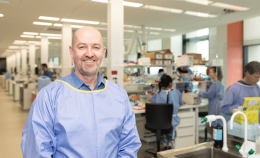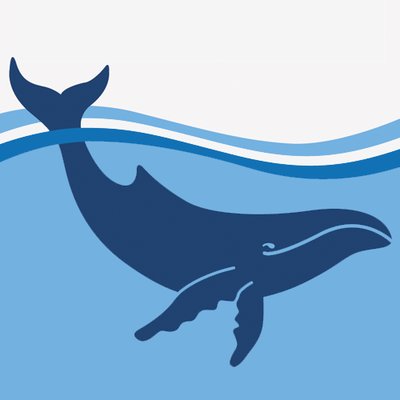June 20 2019
 Through the new NRF Chair in Brain Tumour Research at University of South Australia, Adelaide will become the launch pad for a new personalised approach for glioblastoma treatments – the most lethal form of brain cancer.
Through the new NRF Chair in Brain Tumour Research at University of South Australia, Adelaide will become the launch pad for a new personalised approach for glioblastoma treatments – the most lethal form of brain cancer.
Funded by a $1 million donation from the NeuroSurgical Research Foundation (NRF), the first three-year tenure for the Chair will be held by Professor Stuart Pitson of the Centre for Cancer Biology (CCB), a global leader in brain tumour research.
In addition, the NRF will fund five more brain tumour research projects at the CCB – a UniSA SA Pathology partnership housed in UniSA’s Cancer Research Institute – consolidating support for the research and the need for the new Brain Tumour Research Chair at the University.
The additional projects will total $170,000 and include Dr Tessa Gargett, Associate Prof David Ziegler and Prof Michael Brown’s research into childhood brain cancer, Dr Briony Gliddon and Dr Melissa Pitman’s Blood Brain Barrier Drug Delivery project, and Dr Guillermo Gomez and Dr Dario Arrua Brain Organoids research.
“We need a renewed, collaborative and more cohesive approach to eradicating this deadly disease,” says Prof Pitson, Head of the Molecular Signalling Laboratory in the CCB and now NRF Chair in Brain Tumour Research.
“Our aim for the Chair position is to create a large living glioblastoma biobank that we can use to develop and test new therapies to more effectively treat and ultimately kill the disease.”
Highly invasive and difficult to treat, glioblastoma kills more adults than any other brain tumour and takes more young lives than any other disease. Gains for these patients from new treatment efforts remains stubbornly low in comparison to other cancers – with little change over the past 30 years.
Prof Pitson leads a team that has made some important discoveries in glioblastoma, including highly promising new drug targets that could suppress the tumour’s growth and block its ability to resist treatment.
“There are a number of molecular subtypes of glioblastoma, and there can be many different types of genetic defects between different patient tumours, and these can affect how the tumours respond to therapy,” Prof Pitson says.
“We have developed important relationships with neurosurgeons and glioblastoma patients in order to capture tumour samples for our living biobank and catalogue the different ways the disease is expressed.
“We then grow these different types of glioblastoma in the laboratory, and in advanced pre-clinical models we have developed, we can identify what treatments will likely give the best outcome for patients.
“The model we use is by far the best system for pre-clinical evaluation of glioblastoma drugs. And yet, around the world there are very few systems like this that exist to be used in glioblastoma.”
As setting up these models is complex and requires considerable resources, the CCB and Prof Pitson’s lab will become an important hub in Australia for this testing for both research and patient treatment options.
The project will help to fast-track the translation of research into clinics and give glioblastoma patients a better chance at survival.
NRF supporter Kerry Buttery is one individual who understands how critical this research is for patients after losing her husband Richard to glioblastoma three years ago.
“Patients with glioblastoma and their loved ones desperately need renewed hope for a more effective treatment, for a cure or at least better life expectancy,” she says.
“If there is a way to speed up turning research into better treatments for this disease we need to focus as much energy and funding as we can to make sure families are saved from this terrible heartache.”
UniSA Deputy Vice Chancellor Research and Innovation, Professor Simon Beecham says the support from the NRF is vital.
“We are extremely grateful to the NeuroSurgical Research Foundation for their dedication to improving the odds for people affected by deadly brain tumours,” Prof Beecham says.
“With this ongoing investment into brain tumour research through the NRF Chair in Brain Tumour Research, South Australia will become a leader in brain tumour innovations.”







